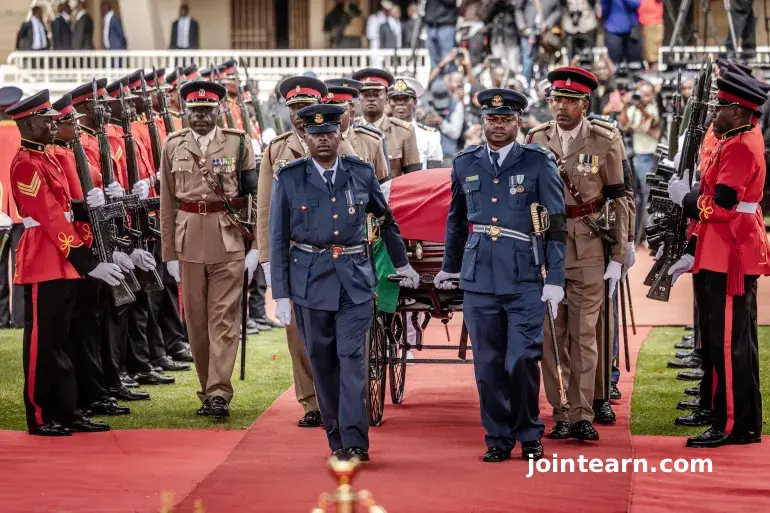
Dozens of people were injured during a memorial event in Kisumu, Kenya, as tens of thousands of mourners gathered to pay their respects to former Prime Minister and opposition leader Raila Odinga. Despite heightened security measures, including military deployments, police presence, and aerial surveillance, crowd surges led to multiple injuries at the Jomo Kenyatta International Stadium.
High Tensions Mark Final Public Viewing
The memorial in Kisumu followed a series of chaotic events earlier in the week, which saw fatalities and injuries during previous viewing ceremonies in Nairobi and other cities. Authorities implemented stricter security measures in response to prior incidents, but overcrowding and emotional distress still contributed to dozens of injuries.
Kenya Red Cross teams were on site to treat individuals fainting from fatigue and distress, evacuating casualties as crowds swelled inside the stadium.
Transport to Ancestral Home in Bondo
After the Kisumu viewing, Odinga’s body was transported to his ancestral home in Bondo, approximately 60 km (40 miles) west of Kisumu, for burial on Sunday. The funeral procession drew enormous crowds, reflecting Odinga’s widespread popularity and influence across Kenya.
Siaya County Governor James Orengo urged the public to maintain calm and ensure peace during the transport and burial ceremonies. “I really entreat members of the public and the community in general to maintain the peace during this period,” he said.
Previous Chaos During Memorial Services
The mourning period has been marked by significant violence and crowd control challenges:
- On Thursday, the first public viewing in Nairobi turned deadly when security forces fired tear gas and weapons to control surging crowds, resulting in at least three deaths.
- On Friday, panic swept through mourners exiting a separate venue in the capital, triggering a crowd crush that killed two more people and sent 163 individuals to medical care.
These events underscore the challenges of managing massive gatherings for a figure as revered as Odinga, whose supporters affectionately called him “Baba,” meaning “father” in Swahili.
Dignitaries and Global Tributes
Friday’s state ceremony in Nairobi attracted high-profile figures, including President William Ruto and Somali President Hassan Sheikh Mohamud. Odinga’s relatives appealed for peaceful proceedings during the ceremonies.
His brother Oburu Odinga poignantly reminded mourners: “Raila should not be teargassed in death. He has been teargassed enough when he was alive.”
Former U.S. President Barack Obama, whose father was Kenyan, honored Odinga as “a true champion of democracy” and praised his commitment to peaceful reconciliation without compromising core values. Obama highlighted Odinga’s decades-long struggle for freedom and democratic governance in Kenya.
Raila Odinga’s Legacy
Although Odinga never assumed the presidency despite five attempts spanning three decades, he profoundly shaped Kenya’s democratic evolution. His contributions include:
- Leading Kenya’s return to multiparty politics in the 1990s
- Driving the adoption of the 2010 Constitution, which decentralized executive power and promoted broader governance reforms
Odinga’s enduring influence has resulted in national and continental mourning, with supporters and dignitaries alike commemorating his lifelong dedication to democracy, human rights, and political reform in Kenya.


Leave a Reply